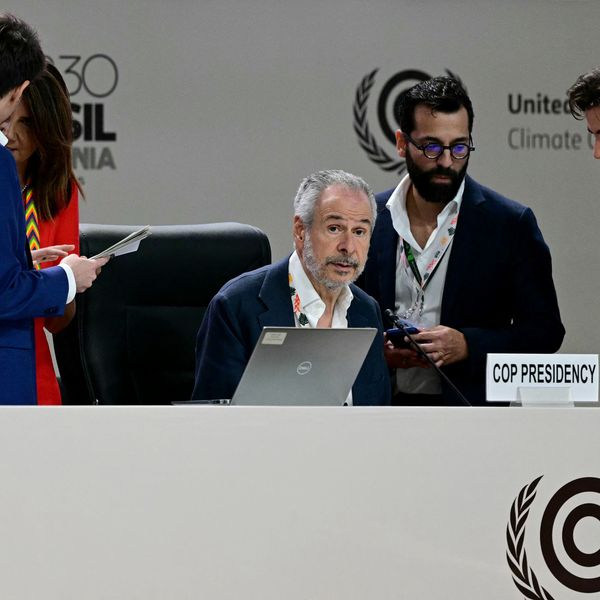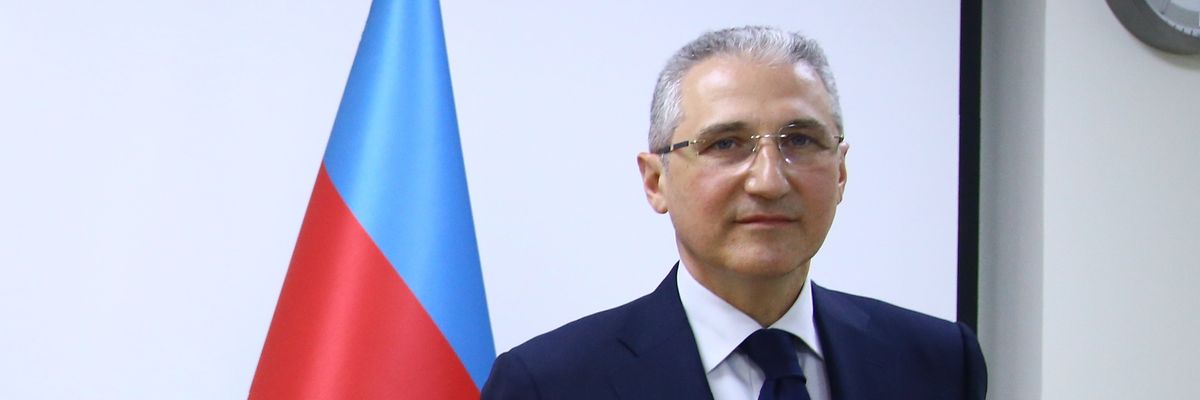Less than a month after COP28 adjourned with a deal
chock-full of loopholes for the fossil fuel industry, the host nation of the next United Nations climate summit has appointed an official who spent more than 20 years working for a state-owned oil and gas company to preside over the next round of global talks later this year.
Azerbaijan's choice of Mukhtar Babayev, who currently serves as the country's ecology and natural resources minister, to head the November talks was
announced Thursday by the United Arab Emirates—which hosted COP28—and confirmed Friday by the United Nations.
"Bad case of déjà vu," the advocacy group Global Witness said Friday in response to the news, alluding to the fact that COP28 was also led by an oil and gas industry insider.
The appointment sparked outrage and warnings that COP29 is already poised to end similarly to COP28, which was
overrun with a record number of oil and gas lobbyists—a fact reflected in the final outcome, which did not include any commitments to phase out planet-warming fossil fuels.
"Is there a point at which legitimate climate advocates cease legitimizing COP?" asked Tara Houska, founder of the Giniw Collective. "It's more than clear this gathering has been fully co-opted by fossil fuels. Is directing our energy to fighting over a conference worthwhile?"
Collin Rees, a campaigner at Oil Change International, called the decision "outrageous" in a series of social media posts.
"We need a rapid shift away from the business-as-usual wrecking the climate, but Azerbaijan starts the COP29 cycle by appointing a lifelong oil man to lead the U.N. climate talks," Rees wrote. "This is deeply worrying + pushes us closer to the abyss. COP29 must feature serious progress on rich countries PAYING UP to help the entire world achieve a fair, funded transition away from oil, gas, coal, and dangerous fossil-fueled distractions like [carbon capture and storage]."
Climate Home News reported that because Azerbaijan's media is "severely restricted, there is not much information publicly available about Babayev other than his official ministry biography and leaked U.S. diplomatic cables" published by WikiLeaks.
What is known is that Babayev spent 26 years at the State Oil Company of the Azerbaijan Republic, where he worked on marketing before being appointed to serve as the company's vice president of ecological affairs.
The UAE said Thursday that Yalchin Rafiyev, Azerbaijan's deputy foreign minister, will be Babayev's lead negotiator at COP29.
"Rafiyev is a newcomer to climate diplomacy,"
Climate Home News reported. "He did not attend the COP26 or COP27 climate talks and his active X (formerly known as Twitter) account has only mentioned climate change once in over six years."
Widely regarded as a petrostate, Azerbaijan is a major exporter of crude oil and natural gas. According to the International Energy Agency, Azerbaijan's oil and gas sector accounts for 90% of the country's total exports. BP is the country's largest foreign investor.
Mohamad Adow, founder and director of Power Shift Africa, told The Associated Press that it is "concerning to be once again having the world's climate negotiations coordinated by a petrostate that has a big interest in oil and gas production."
"He's got a huge job to do," Adow said of Babayev. "He needs to start working on getting rich countries to deliver serious, long-term finance that will tackle the climate crisis."



